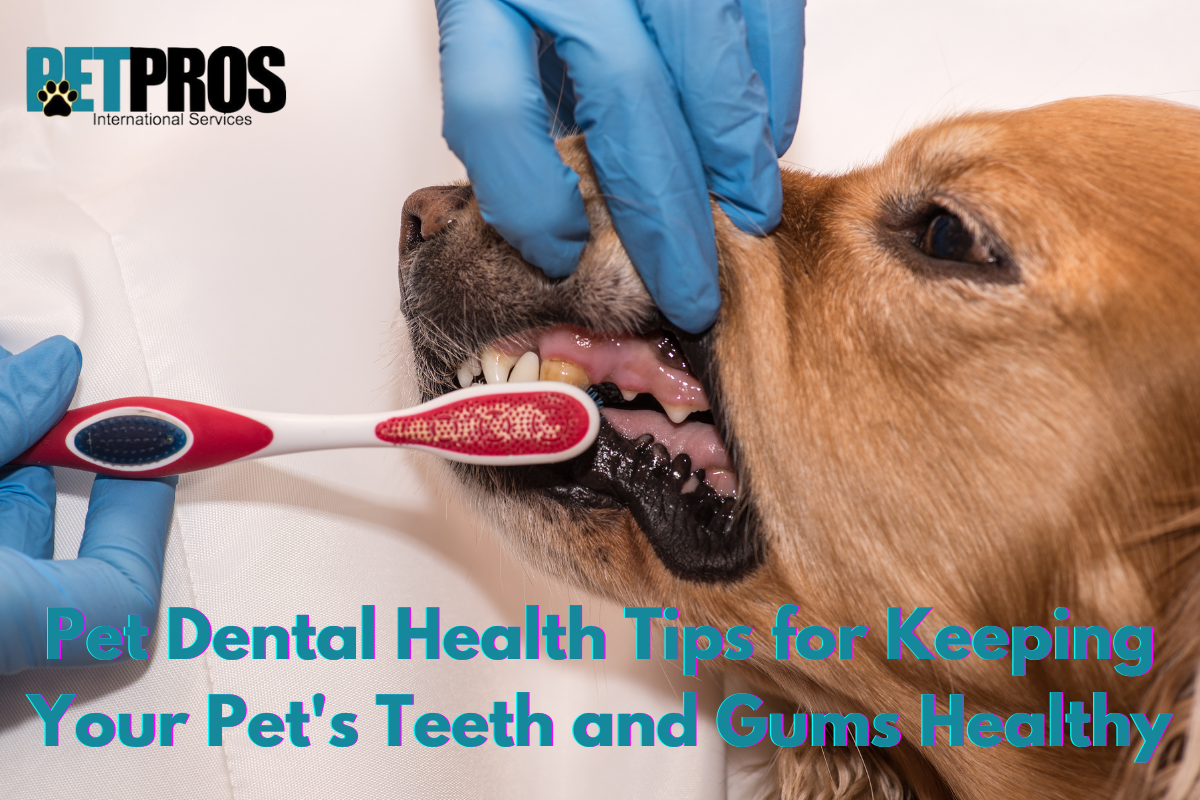Introduction
Just like humans, pets require proper dental care to maintain health and well-being. Neglecting your pet’s dental hygiene can lead to various oral health problems, including gum disease, tooth decay, and bad breath. In this blog, we will provide you with valuable tips to help you keep your beloved furry friend’s teeth and gums healthy. Following these suggestions ensures that your pet maintains a beautiful smile and optimal oral health.
- Regular Brushing: One of the most effective ways to maintain your pet’s dental health is through regular brushing. Just as you brush your teeth, brushing your pet’s teeth is important too. Using a pet-friendly toothbrush and toothpaste, gently brush your pet’s teeth at least 2-3 times a week. Begin by introducing the toothbrush gradually, allowing your pet to get accustomed to the sensation. Start with a small amount of toothpaste and work your way up. Using toothpaste specifically formulated for pets is essential, as human toothpaste can harm them. Brushing helps remove plaque and prevents the buildup of tartar, reducing the risk of gum disease.
- Dental Chews and Toys: Providing your pet with dental chews and toys can greatly promote oral health. These products are designed to help remove plaque and tartar buildup while keeping your pet entertained. Look for dental chews that have the Veterinary Oral Health Council (VOHC) seal of approval, as they meet the necessary standards for effectiveness. Chewing on these treats and toys helps to scrape away plaque, massage the gums, and stimulate saliva production, which naturally cleanses the mouth. Avoid using hard objects like bones, as they can cause tooth fractures.
- Balanced Diet: A well-balanced diet is crucial in maintaining your pet’s dental health. Opt for high-quality pet food that is specifically formulated to support dental health. Some pet foods are designed with textured kibble that aids in cleaning the teeth as your pet chews. These kibbles can help remove plaque and massage the gums. Additionally, avoid giving your pet excessive amounts of sugary treats and table scraps, as they can contribute to tooth decay and other oral problems. Consult your veterinarian to determine the most appropriate diet for your pet’s oral health needs.
- Regular Veterinary Check-ups: Regular veterinary check-ups are essential for monitoring your pet’s dental health. During these visits, your veterinarian will examine your pet’s teeth and gums, checking for signs of dental issues such as gum disease, tooth decay, or infections. They may also recommend professional dental cleanings if necessary. Professional cleanings are performed under anesthesia and involve thoroughly cleaning the teeth, including scaling and polishing. Early detection and intervention can prevent further complications and ensure your pet’s oral health is well-maintained. Your veterinarian may also provide recommendations for at-home dental care based on your pet’s specific needs.
- Be Mindful of Warning Signs: Awareness of the warning signs of dental problems in your pet can significantly affect their oral health. Keep an eye out for symptoms such as bad breath, swollen or bleeding gums, loose or missing teeth, difficulty chewing, and changes in eating habits. If you notice any of these signs, it’s essential to consult your veterinarian promptly for a thorough examination. Ignoring dental issues can lead to pain and discomfort for your pet and potential complications affecting other organs, such as the heart and kidneys. Regular observation and proactive care can prevent such issues from developing or worsening.
- Water Additives and Oral Rinses: Besides brushing, dental chews, and a balanced diet, you can consider using water additives and oral rinses as supplementary measures for your pet’s dental health. These products are formulated to maintain oral hygiene and freshen your pet’s breath. Water additives can be added to your pet’s drinking water, helping to reduce bacteria and control plaque formation. Oral rinses can be applied directly to your pet’s mouth, providing additional antimicrobial benefits. However, following the product instructions and consult your veterinarian for suitable options and usage guidelines is essential.
Conclusion
By implementing these tips into your pet’s routine, you can significantly improve their dental health and overall well-being. Prevention and regular care are essential to maintaining your furry friend’s oral hygiene. A healthy smile enhances your pet’s quality of life and contributes to their longevity. Prioritize your pet’s dental health today and ensure they have a lifetime of pearly whites and happy gums! Consult your veterinarian for personalized advice based on your pet’s specific needs.





